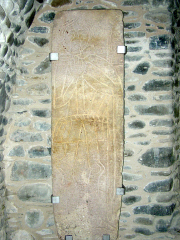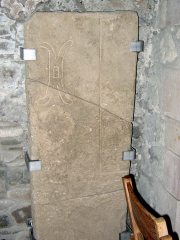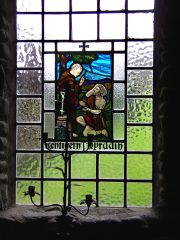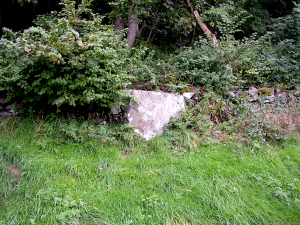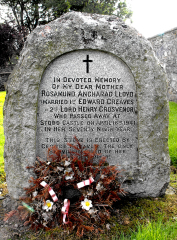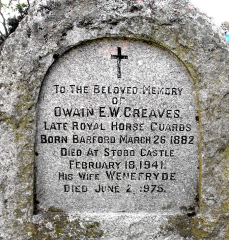In times of national crisis, when Britain is under threat or involved in overseas conflict, the BBC gives unquestioning support to the official government line. To all intents and purposes the BBC becomes the mouthpiece of the government, an agent of propaganda. This is understandable, it may even be acceptable, though what is less easy to understand is why a referendum on Scottish independence should have been treated like a war, or why Alex Salmond was put on a par with General Galtieri or Saddam Hussein.
And even when the referendum had been ‘won’ the BBC couldn’t drop its prejudice. On the day following the referendum gangs of Loyalists roamed the streets of Glasgow, attacking peaceful Yes supporters and burning Scottish flags. Many of these thugs – some giving Nazi salutes – had come over from the Six Counties, others had come up from England. Yet the BBC reported it as two groups – one pro independence the other pro Union – both intent on violence. If they’d believed they could have got away with it I’m sure the BBC would have portrayed the pro-independence students and families as the aggressors. It was left to the Herald to give the truth, even identifying a Rangers supporters group involved in organising the violence and encapsulating what really happened in George Square and nearby streets with the memorable phrase, “The heart of Glasgow had gone from Woodstock to Belfast in the space of just one day”.
Of course no one at the BBC would admit to it, nor would anyone in the Conservative Party, or at The Times, or in the Tesco boardroom, or on the trading floor at Deutsche Bank, but those thugs that terrorised central Glasgow last Friday night – violent and malodorous though they might be – are allies, for they’re all found in the great Unionist spectrum. This explains why the BBC and the rest of the London media deliberately misreported those events in Glasgow.
*
If the Scottish referendum presented a very real threat to England’s prestige this wonderful United Kingdom, then it follows that potential or lower level threats must also be dealt with, using the same agencies, primarily the BBC. Yesterday the BBC produced the results of a poll that purported to show that only 3% of people in Wales favoured independence. A quite remarkable finding when compared with other recent polls.
Polls this year by ITV Wales put support for independence at 14% in May and 17% in September. Another poll in September, this one by Face for Business, suggested that support for independence was as high as 29%. Now it would be easy to dismiss this last poll as being wrong . . . though few did, for it seems to have been ignored by the media. I was tempted to dismiss it myself, until I looked into it a little more and found that it provided a breakdown by age group, so I made a comparison with what has been produced for the Scottish  referendum by Lord Ashcroft Polls, and the concurrence is quite striking.
referendum by Lord Ashcroft Polls, and the concurrence is quite striking.
The little table I drew up unsurprisingly shows that there is more support for independence in the younger age groups, while it falls off dramatically in both countries after the age of 55. Though the fall is greater for some reason in Scotland, where among the 65+ support for independence is 46% of the highest independence supporting age group, while in Wales it’s 51%. This is strange, even more so when we consider that so many English people retire to Wales. (In the area where I live they make up two-thirds of the 65+ age group.) And even if the FfB poll is all to hell, I still don’t fully understand why support for independence in Scotland declines so dramatically in the 65+ bracket.
Whatever the answers, we have to remember that opinion polls are not simply produced to tell us what people are thinking, many are designed to influence how people think, and this explains the BBC poll. Also, to provide ammunition for the defenders of the UK State who, in Wales, love to trot out the lie that, ‘only between five and ten per cent want independence’. (Hang on, is this why the Face for Business poll was totally ignored?) The only way to establish how many people in Wales want independence is to ask them the same question that was asked in Scotland last Thursday (with Wales substituted for Scotland) – ‘Should Wales be an independent country?’ That’s it, one simple question. Anything else, involving multiple choice or ‘answer-guided’ questions, is unacceptable and designed to confuse and mislead.
Among those making political capital out of the BBC’s propaganda poll was Councillor Pearleen Sangha of Swansea (well sort of, as I’ll explain). She re-tweeted @PearleenSangha enthusiastically that within a margin of error there could be nobody in Wales who wants independence. Even making allowances for the fact that Ms Sangha doesn’t know  Wales, not even she believes that. But it’s not about what people really believe, is it, we’re talking propaganda here. Councillor Sangha is a staunch defender of the Union, and was up in Scotland for a few weeks campaigning for a No vote. Though seeing as she’s from the USA I can’t help wondering if she’s a UK citizen, and if not, should she have involved herself in a constitutional issue like this. Although nominally a Swansea councillor Sangha is now working for the Labour Party in Cardiff, so her Uplands constituents see very little of her these days. Though perhaps they don’t notice, for even when she was in Swansea she was strictly a Monday to Friday and 9 to 5 councillor. That’s when she was there, because she also likes to take lengthy trips home to California, and being a true party girl, she never misses a Labour conference or knees-up.
Wales, not even she believes that. But it’s not about what people really believe, is it, we’re talking propaganda here. Councillor Sangha is a staunch defender of the Union, and was up in Scotland for a few weeks campaigning for a No vote. Though seeing as she’s from the USA I can’t help wondering if she’s a UK citizen, and if not, should she have involved herself in a constitutional issue like this. Although nominally a Swansea councillor Sangha is now working for the Labour Party in Cardiff, so her Uplands constituents see very little of her these days. Though perhaps they don’t notice, for even when she was in Swansea she was strictly a Monday to Friday and 9 to 5 councillor. That’s when she was there, because she also likes to take lengthy trips home to California, and being a true party girl, she never misses a Labour conference or knees-up.
UPDATE 27.09.14: I’m told the Evening Post ran a story today (can’t find it on the website) in which it queried Councillor Sangha’s status. She claims to have resigned as a councillor in July and informed the party leadership, which was then (the recently departed) David Phillips. Yet no one else seems to know about this, certainly no by-election has been called. But despite what she told the Evening Post, on her Twitter account Cllr Sangha is still describi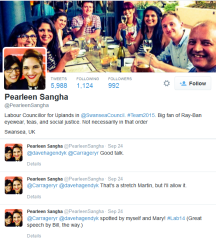 ng herself as a Labour councillor for Uplands! (Click to enlarge.) Lending weight to the suspicion that she is still, officially, a councillor – even though, due to her long absence and appalling attendance, record she shouldn’t be – is the fact that her council e-mail address is still receiving mail. In addition, she is still listed on the council’s website as a councillor. So what’s the story here?
ng herself as a Labour councillor for Uplands! (Click to enlarge.) Lending weight to the suspicion that she is still, officially, a councillor – even though, due to her long absence and appalling attendance, record she shouldn’t be – is the fact that her council e-mail address is still receiving mail. In addition, she is still listed on the council’s website as a councillor. So what’s the story here?
28:09:14: A story on the Evening Post website today tells us that “Uplands councillor Pearleen Sangha steps down from her post”. She is quoted as saying “It is with regret that I have formally tendered my resignation as a Swansea councillor”. Which I take to mean that she’s resigning now, following the recent attention. Though she claims she decided “some time ago” to resign, perhaps at “the end of July”, when she says she informed the “leadership” of her intentions. (‘Leadership’ suggests more than one person, so who exactly did she tell?) She also wants us to know that she has not received her councillor allowance since then – good for her! Though the problem is that she went AWOL long before July, so it looks as if she was getting paid her councillor allowance while she was no longer in Swansea, no longer attending council and committee meetings, no longer serving her constituents. It has been obvious for a year or so that Pearleen Sangha was not doing her job as a Swansea councillor, but the local Labour Party allowed this situation to persist, and for her to collect her councillor allowance – simply because she is working full-time for the party, in Cardiff. What a squalid arrangement! What contempt it shows for the city of Swansea and its people. Yet another example of the Labour Party putting its interests first.
*
Robert Burns wrote a damning indictment of those who sold out his country’s independence in Parcel of Rogues; perhaps it should be updated, or maybe someone should give us a new song for the twenty-first century.
Any new ‘Parcel of Rogues’ would have to mention the British Propaganda Corporation, and the London newspapers . . . you know, those ‘journalists’ who’ve been tapping phones, and bribing bent London coppers, like the ones involved in the murder of Daniel Morgan. And we mustn’t forget the noble and upstanding politicians, most of whom seem to be fiddling their expenses. Sticking with politicians, let’s remember ALL the parties opposed to Scottish independence – Labour, Tory, Lib Dem, Ukip, BNP, National Front, Britain First, and a host of even smaller, loonier parties; plus of course the Unionists and Loyalists across the water. Finally, there was Carwyn ‘the veto’ Jones. Then there’s the supermarkets, the supermarkets that rip off Welsh farmers. And how could we forget the banks, for all of them were opposed to Scottish independence because they feared being properly regulated, as they are just about everywhere outside of the UK and the USA. Have you noticed that the bankers who end up in court are not the ones who nearly wrecked the Western economy but ‘rogue traders’, in other words, those who lose the banks’ money! Then there’s the oil industry, ‘Scottish oil running out’ they screamed . . . then four days after the referendum we learn that they got it wrong. But of course, this was unknown before referendum day! These are just some of the turds to be found floating in the cess-pit of modern Britain, the most corrupt and unequal society in Europe.
If the people of Scotland had known the truth, if they could have relied on an impartial and unbiased media, then Scotland would today be on its way to independence. That’s why Britain’s elite so desperately needed its propaganda machine and its foot-soldiers. But it was so blatant, so clumsily done and so easily exposed, that the backlash has started, and Scotland will be independent within ten years. The changes Britain will see in the coming decade will not end with Scotland. Fasten your seatbelts!
Will those sending not-for-publication comments appreciate that I cannot reply to, for example, anonymous@anonymous. If you want to provide information please e-mail editor@jacothenorth.net.




